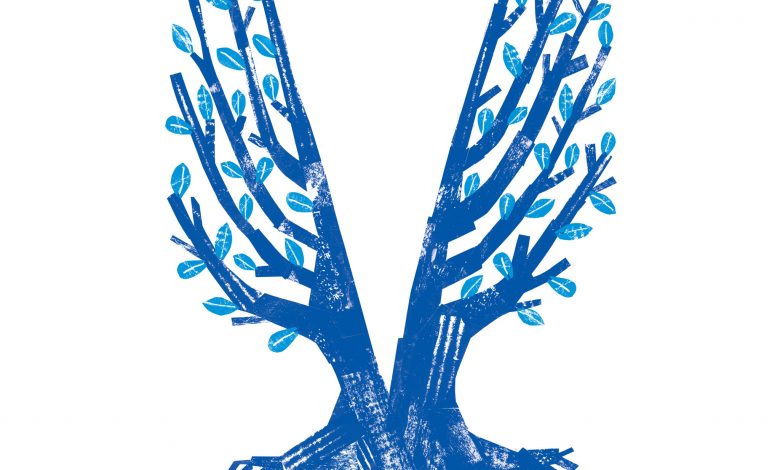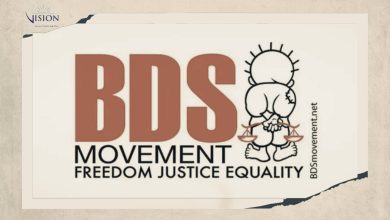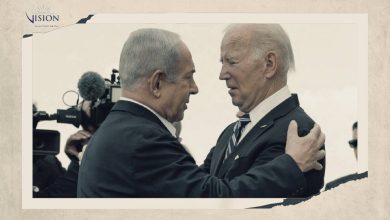The Divided Jewish Political Community in America

The American Enterprise Institute
Samuel J. Abrams
As the 2022 midterm election approaches, pundits and politicos will undoubtedly talk about the Jewish community’s interests. But speaking about “the Jewish community” these days is a huge mistake. Maybe more than ever, there is no single Jewish voice in America. Like most of America, the Jewish community has become deeply sorted along ideological lines. While politically and culturally Orthodox Jews are generally in line with evangelical and other Christian conservatives, politically liberal Jews (who are almost entirely non-Orthodox) have turned away from traditional institutions and cultural markers of Judaism. Their politically conservative non-Orthodox counterparts, though, staunchly support Israel and value traditions and distinctive Jewish cultural mores
Data from Pew’s landmark study of Jewish Americans in 2020 reveal the depth of this ideological sorting. A socio-political phenomenon has taken hold of American politics over the past few decades where ideologies have become more internally homogeneous and more distinct from each other. More specifically, sorting occurs when ideological and attitudinal positions no longer vary but are expected to align to particular liberal or conservative attitudes. The result today is that, compared to a few decades ago, liberals (and Democrats) are more uniformly left-leaning, while conservatives (and Republicans) are more uniformly right-leaning. Both the left and right generally promote packages of ideas and attitudes that must be adopted wholesale if one is not to fall into disfavor.
The nation has seen stark ideological differences broaden to encompass much of social life and cultural mores. In broad strokes, liberals turn away from tradition and institutions; conservatives are more focused on faith and traditional institutions. As goes the nation, so go the Jews. The Pew survey finds real differences in numerous attitudes between conservative and very liberal Jews.
For instance, among the non-Orthodox, consider the relative import of being part of the Jewish community: 35 percent of self-identified conservatives and just 20 percent of very liberal Jews feel that being part of a Jewish community is essential to being Jewish. (The conservatives, including the very conservative, amount to 12 percent of the non-Orthodox; the very liberal – excluding the liberals – comprise 20 percent.) Similarly, when asked about how much meaning and fulfillment faith provides, 55 percent of politically conservative Jews believe it provides some or a great deal of meaning; just 27 percent of very liberal Jews feel the same way. Overall, political conservatives are more inclined than the very liberal to see being Jewish as very important to them (42 percent vs. 32 percent). And all these differences would be even more pronounced if the Orthodox – politically conservative and religiously traditional – were included in these calculations.
Anyone following the news over the last few years should not find these significant ideological differences surprising. Many liberals have recently sought to tear down institutions and reject traditional structures like religion for a host of reasons related to power and inequity, Simultaneously, they have attempted to define themselves as being unique and individualistic while their community connections are attenuated and feelings of connection are generally weak. Thus, the finding that liberal Jews are far less likely to believe that the value of community groups and faith compared to conservative Jews directly fits into the sorting narrative.
Liberal non-Orthodox Jews have turned away from traditional values and practices, revealing a deep disconnect from conservative members of the Jewish community. When it comes to collective belonging and commitment, the gaps between politically conservative and very liberal Jews among the non-Orthodox are especially pronounced.
Conservatives lead significantly with respect to feeling a great deal of belonging to the Jewish people (53 percent vs. 39 percent), commitment to helping Jews in need (33 percent vs. 20 percent), and, likewise, making donations to Jewish charities (50 percent vs. 32 percent). Similarly, on the question of caring for Israel, three quarters of conservative Jews (76 percent) state that concern for Israel is essential to who they are as Jews, while under a quarter (22 percent) of very liberal Jews feel the same way. Conservatives are three times as likely as very liberals Jews to say they are very emotionally attached to Israel (36 percent vs. 12 percent for the very liberal and just 15 percent for liberals). Far more conservatives care about perpetuating Jewish identity in their families. Asked about their (prospective) grandchildren, non-Orthodox conservatives were more than twice as likely to say it was very important they identify as Jews (42 percent vs. 18 percent) and four times as likely to say the same about marrying Jews (23 percent vs. 6 percent).
There are some areas where liberals lead. When asked about working for social justice and equality in society – a topic that is a core belief in Judaism – ideology plays a non-trivial role. While 45 percent of conservatives state that social justice concerns are essential parts of being Jewish, 70 percent of very liberal Jews agree. Very liberal Jews are somewhat more likely to share Jewish culture with their non-Jewish friends (68 percent for very liberals vs. 56 percent for conservatives – in part because they have more such friends) and to partake of distinctively Jewish food (72 percent vs. 62 percent). They also are more likely to engage in political activism as an expression of their Jewishness (44 percent vs. 30 percent).
The only two areas in the survey where ideological positions do not diverge by such massive degrees involve the centrality of remembering the Holocaust (84 percent of conservatives and 74 percent of liberals) and leading an ethical and moral life (75 percent of conservative and 68 percent of very liberal Jews). Despite these few instances of relative convergence, non-Orthodox Jews are deeply sorted by ideology. Although conservative Jews are not always uniformly or even overwhelmingly supportive of traditional Jewish institutions, traditions, and practice, they are often far more likely to accept and embrace their Jewish roots and identities than liberal Jews, many of whom have all but rejected Jewish traditions other than a deep appreciation for social justice.
This article has been already published by The American Enterprise Institute





